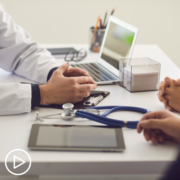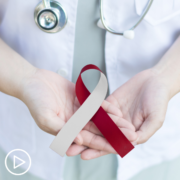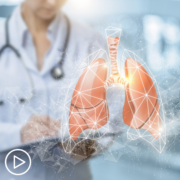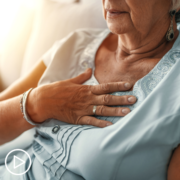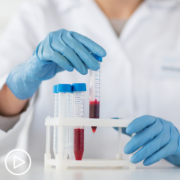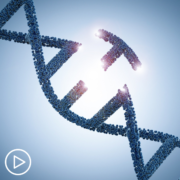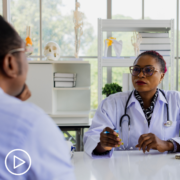Extensive Stage Small Cell Lung Cancer | Empowering Symptom Management
Extensive Stage Small Cell Lung Cancer | Empowering Symptom Management from Patient Empowerment Network on Vimeo.
How can extensive stage small cell lung cancer patients be empowered for symptom management? Expert Beth Sandy from Abramson Cancer Center discusses how she empowers patients and care partners, common treatment side effects, and advice for patients preparing for treatment.
[ACT]IVATION TIP
“…make sure before you leave the office or on the day you’re coming for chemotherapy that you have all your questions answered, that you feel pretty confident in what side effects you may experience. I am a proponent of writing down your questions.”
See More from [ACT]IVATED Small Cell Lung Cancer (SCLC)
Related Resources:
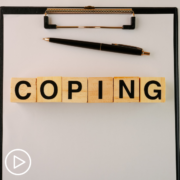
|
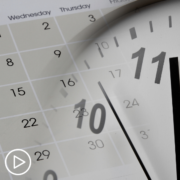
|
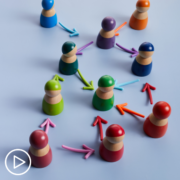
|
Transcript:
Lisa Hatfield:
Beth, extensive stage small cell lung cancer and its associated treatments often come with challenging symptoms. How do you prioritize the patient education to empower both your patients and their care partners in recognizing and managing these symptoms at home?
Beth Sandy:
Yeah. So the treatments that we have are predominantly chemotherapy. We also can use immunotherapy, and these have a whole host of different side effects. Some patients may be dealing with just symptoms of the disease like shortness of breath or cough, but then when you add in the chemotherapy, it’s going to add a whole host of other side effects. I think there are a few important things to note here. Number one, know the names of the drugs that you’re getting, and at my institution, we will print them out for you with an education sheet. So we like to give printed materials, because it’s hard to remember everything we say and not everybody’s going to sit there and take notes and write it down, so we give printed materials. I think that’s important. And then understanding the schedule.
So typically the first-line treatment that we use for this is three days in a row. It’s given once every three weeks. So you’re not just coming in one day. You actually have to come in three days in a row, and most cancer centers aren’t open on the weekend, so you would often have to be preparing to start this regimen either on Monday, Tuesday, or Wednesday.
So just think about that. We rarely start these regimens on a Thursday or Friday, because we want that consecutive three days in a row. There are scheduling issues that come into play here. And then the side effects, so we can predict really well what the side effects actually are going to be. I often can’t predict a lot of things with cancer, but side effects of chemotherapy are fairly predictable, and truthfully, most patients are going to lose their hair with this treatment. It grows back. So don’t worry. It grows back, but in the beginning, hair loss is something that may happen, so we need to tell patients that. No one wants to be at home, and all of a sudden all your hair falls out and you didn’t know that.
And then there’s chemotherapy side effects, things like lowering of blood counts, nausea. What I do want to say as I’ve been doing this for 20 years, our supportive care medications for preventing and treating nausea are so much better now. So it’s nothing like it was 20 years ago, and 30 years ago. When I started as a nurse, we didn’t have good medications then. We’ve really good medications now. So nausea tends to not be as big of an issue as what you may have experienced with a family member in the past, so that usually we can prevent pretty well.
But talking about the lowering of blood count is a big issue that it can put you at risk for infection, you may need blood transfusions. These are things that you have to talk about. So just make sure you have a pretty good understanding of that. The other thing we can predict is fatigue. So most patients are going to get fatigue, and usually it will be in the first week of treatment, but it won’t last the entire three weeks between the treatments.
So my activation tip here for this would be to make sure before you leave the office or on the day you’re coming for chemotherapy that you have all your questions answered, that you feel pretty confident in what side effects you may experience. I am a proponent of writing down your questions and bringing them in and I like when patients do that because then I can answer them, because otherwise I feel sometimes like did I answer everything? Do I forget anything that’s important to you? What may be important to you may not be as important to another patient? So write down your questions and make sure you have all of them answered before you leave especially when it comes to chemotherapy side effects.
Share Your Feedback:
Create your own user feedback survey

